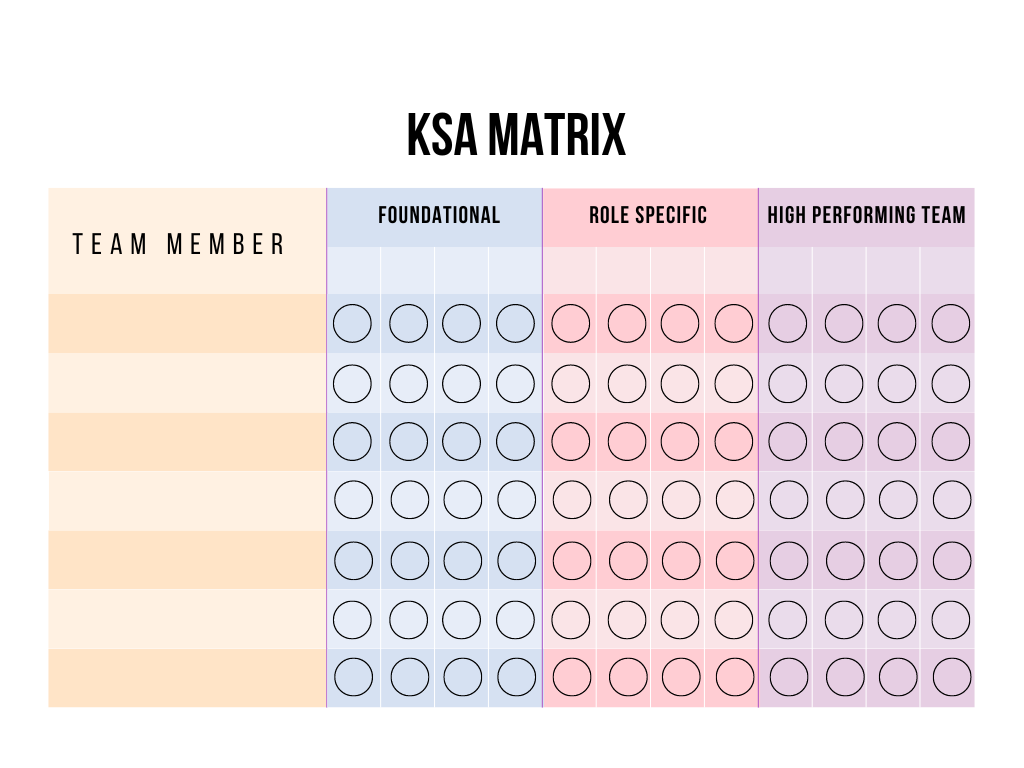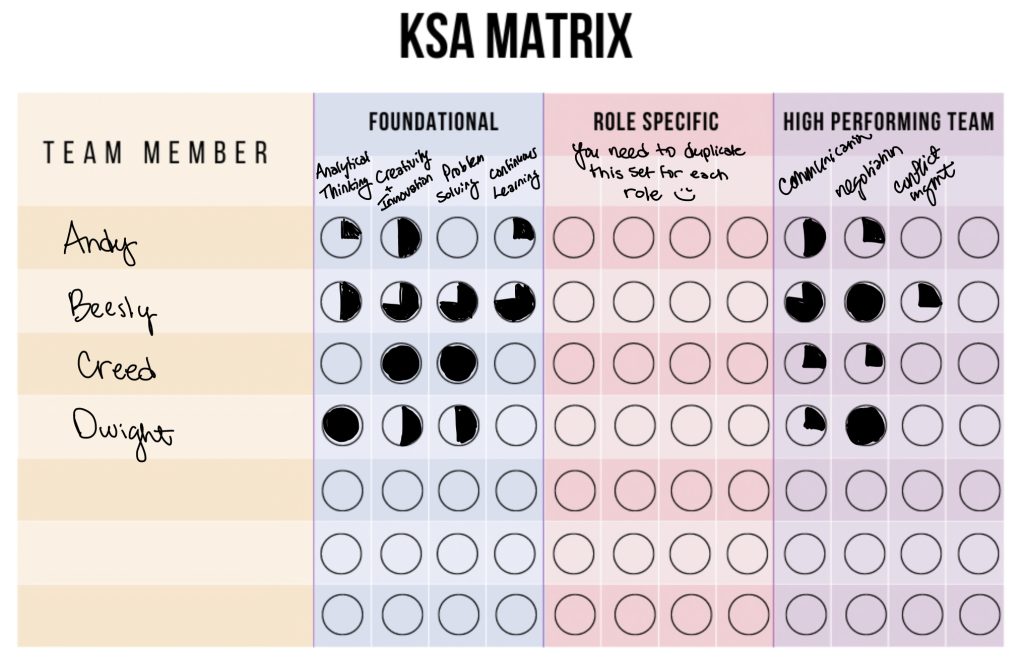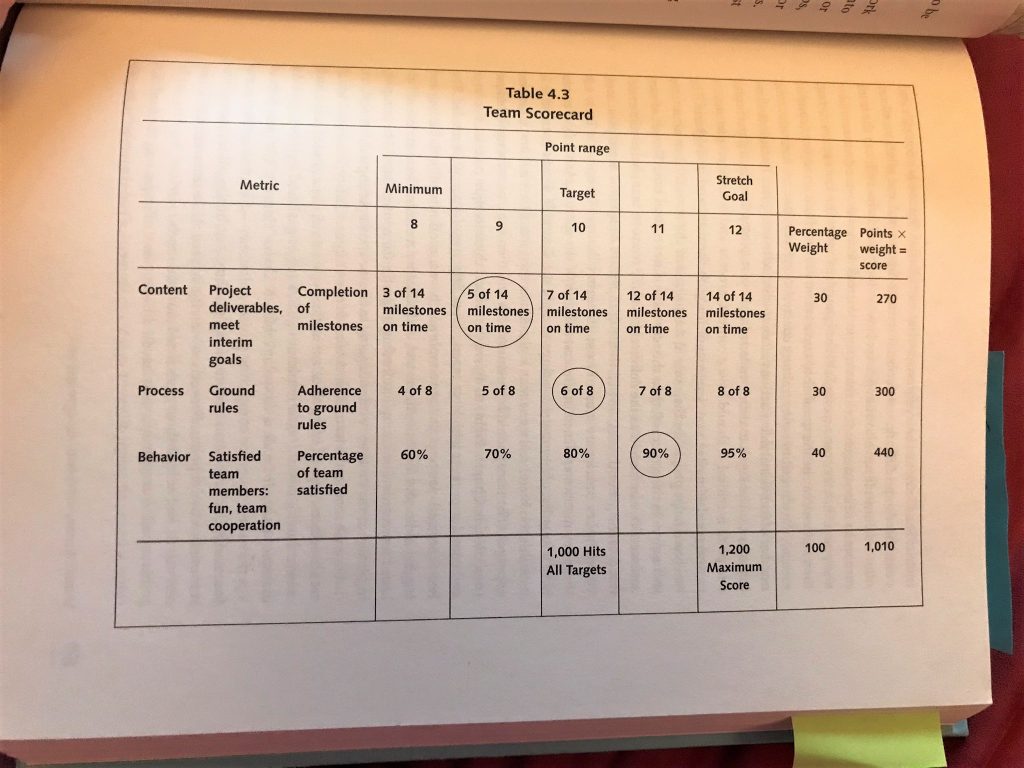KSA means Knowledge, Skills, Abilities. I’ve created a simple one below to show how you can track KSA’s and more (perhaps competencies, or “DELTAs,” or “power skills”… you get to decide what to track!)
Note that according to PMI, “Power skills — also known as interpersonal skills or soft skills such as communication, problem-solving and collaborative leadership — are proving essential for project professionals.” According to PMI research, communication, problem-solving, collaborative leadership, and strategic thinking are the top four power skills of project professionals. In fact, to maintain your PMP certification, you need to earn professional development units (PDUs) that relate to Power Skills. In defining the updated Talent Triangle, PMI labels one side of the triangle as Power Skills, expanding beyond the qualities I mentioned here already to include: an innovative mindset, for-purpose orientation, and empathy. Ensuring teams have these skills allows them to maintain influence with a variety of stakeholders – a critical component for making change.
And what are these deltas? Well, McKinsey’s research “…identified 56 distinct elements of talent (DELTAs) that fall within these skills groups. We call them DELTAs, rather than skills, because they are a mix of skills and attitudes. “Adaptability” and “coping with uncertainty” are attitudes, for example.”

For foundational KSA’s, check out the Gartner Blog for ideas… perhaps you’ll choose problem solving and creative/innovative thinking.
For role-specific KSA’s… well you know what to do with that one.
For High Performing Team KSA’s, you can use the qualities that PMI lists in the PMBOK 7 (open communication, shared vision, etc). This is another one of my faves that I like looking at when setting expectations with the team.
Here’s an example of how to use the above visual tracker. I like the circles because you can track growth quite easily:
- No KSA yet (empty circle)
- Basic knowledge / low competence
- Performs with help / some competence
- Performs solo / high competence, expert
- Can teach others (completely filled in circle)

One of the stand out tools I’ve seen over the years comes from Human Factors in Project Work by Zachary Wong, PhD. I highly recommend this book. This would be something you co-create with your team. Notice how the team would come up with metrics relating to content, process, and behavior:

Are performance goals the same thing as development goals?
No. I also recommend distinguishing between performance goals and development goals. Managers and HR teams use performance reviews to evaluate employees’ work and ensure they’re on track to achieve business goals and objectives. Your project team members must also be supported in their professional and personal growth if you want them to reach their full potential. Having regular developmental reviews is one of the best ways to accomplish this. After all, we all are continually growing and improving, right? One might say (or sing) getting better and betterer?
Food for thought:
The Difference Between Development and Performance Reviews and Why You Need Both
How much time should your team be spending on learning (and innovating)?
20%! Says who? Google! Note that not all work is innovative, but if you are in an industry that requires innovation and creativity, this approach may help you out. See also: Bringing scientific thinking to life: An introduction to Toyota Kata for next-generation business leaders (and those who would like to be) if you are looking for tactics (HOW to actually do this). Google also doesn’t want its people to achieve 100% of their OKRS (Objectives and Key Results). Why? Because if they do, that is an indicator that the bar was set too low! Read more here.
Read My Related Post: